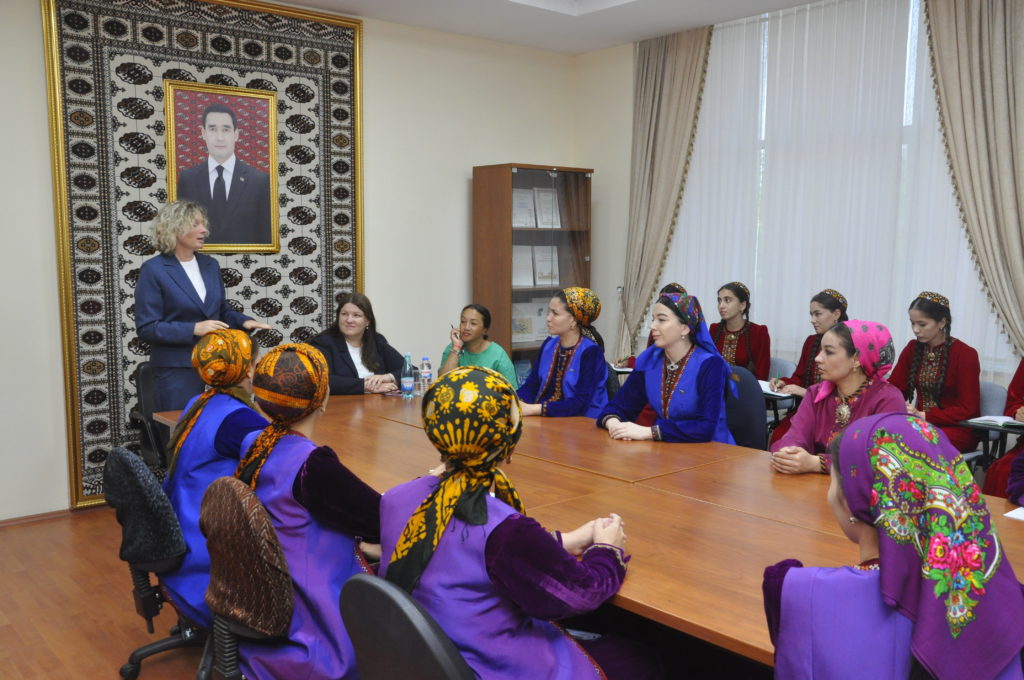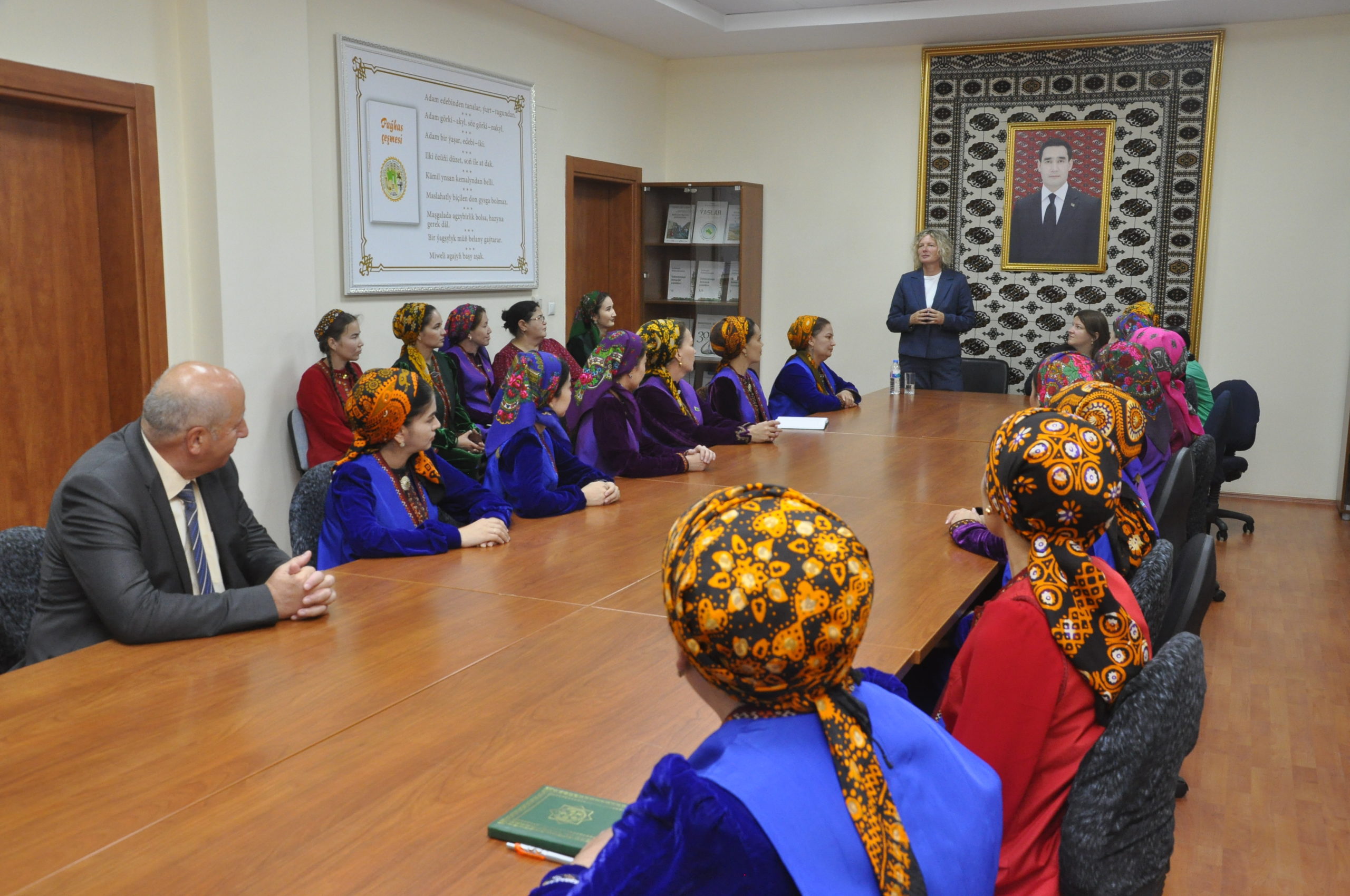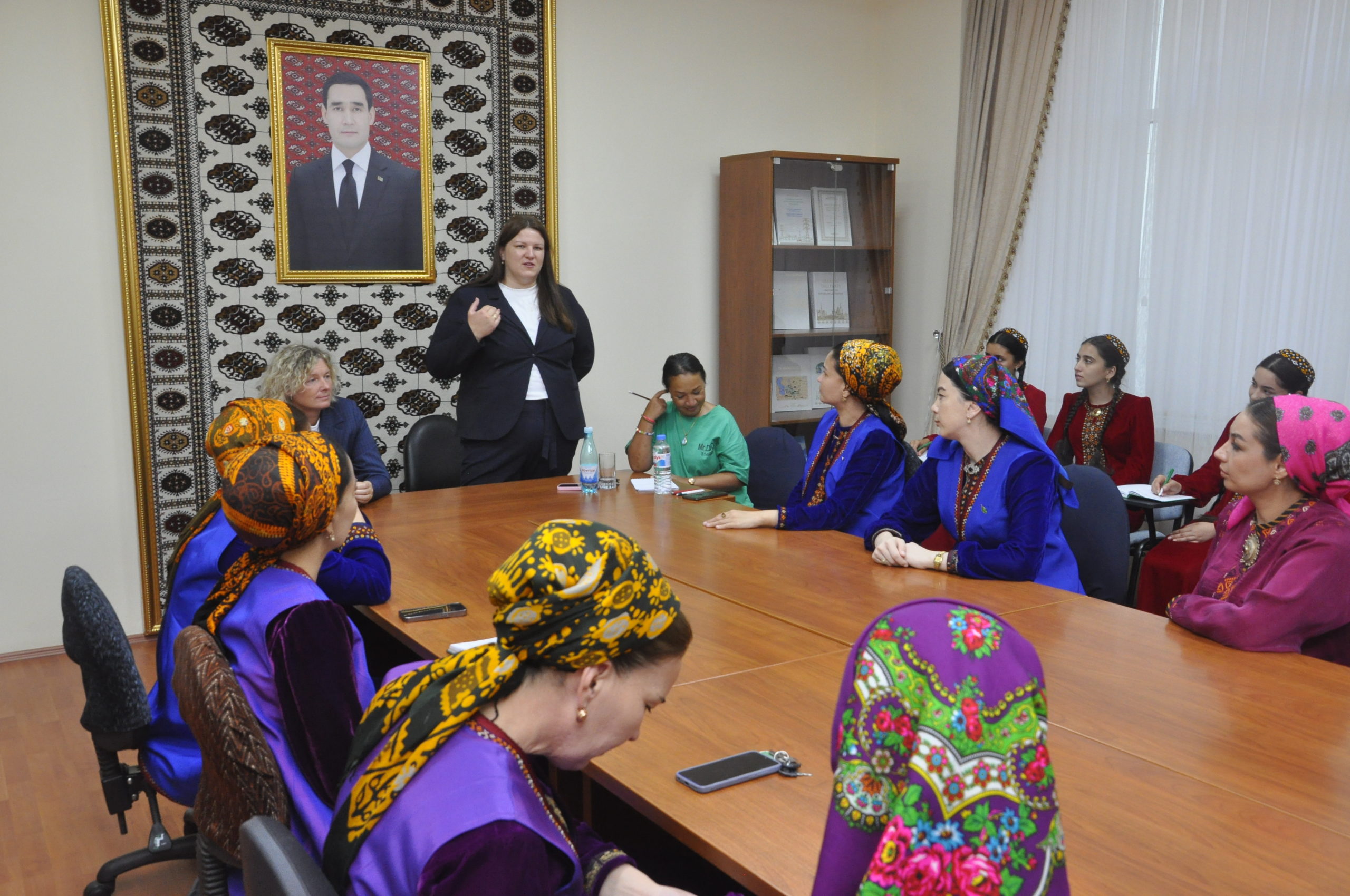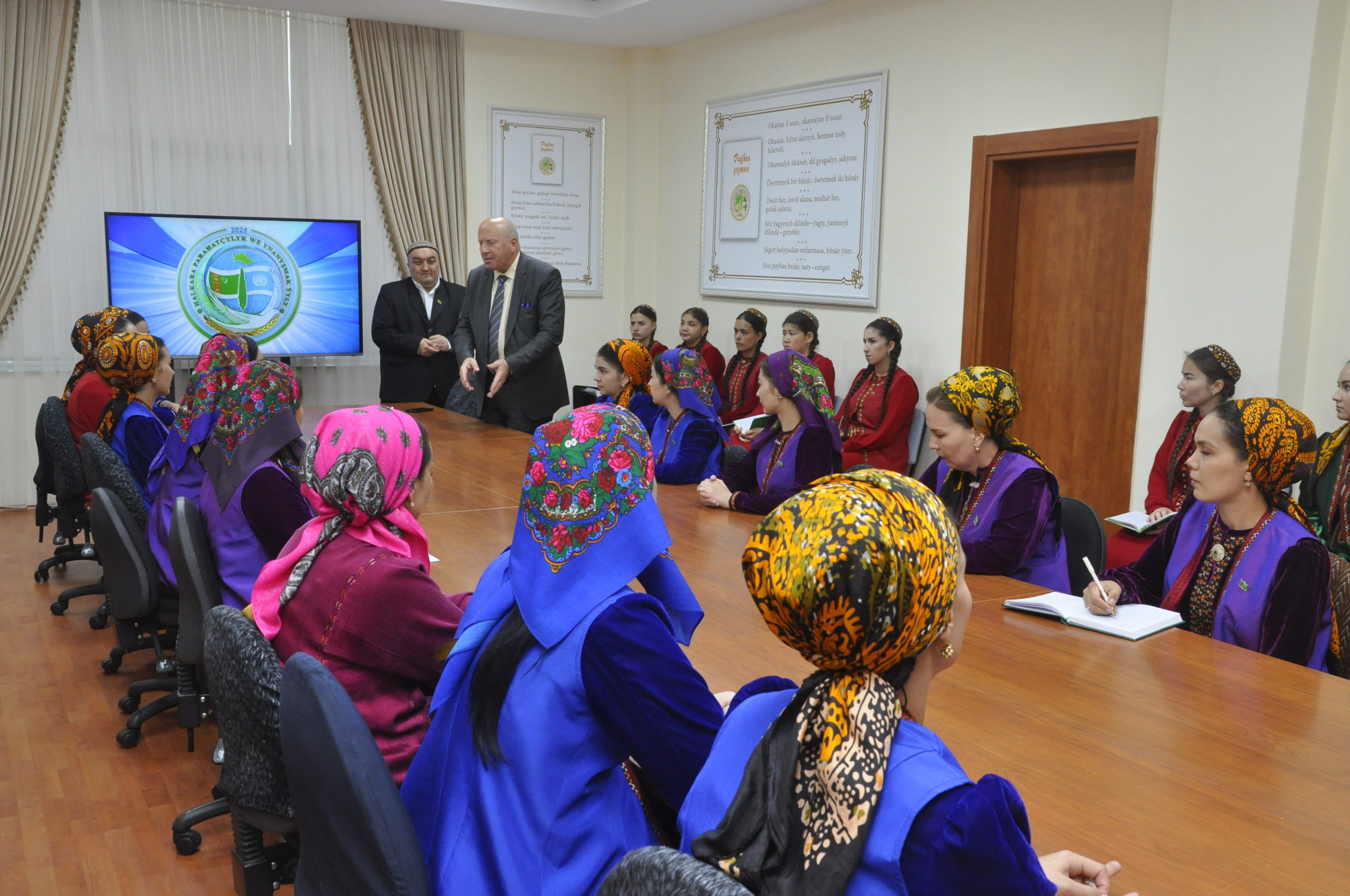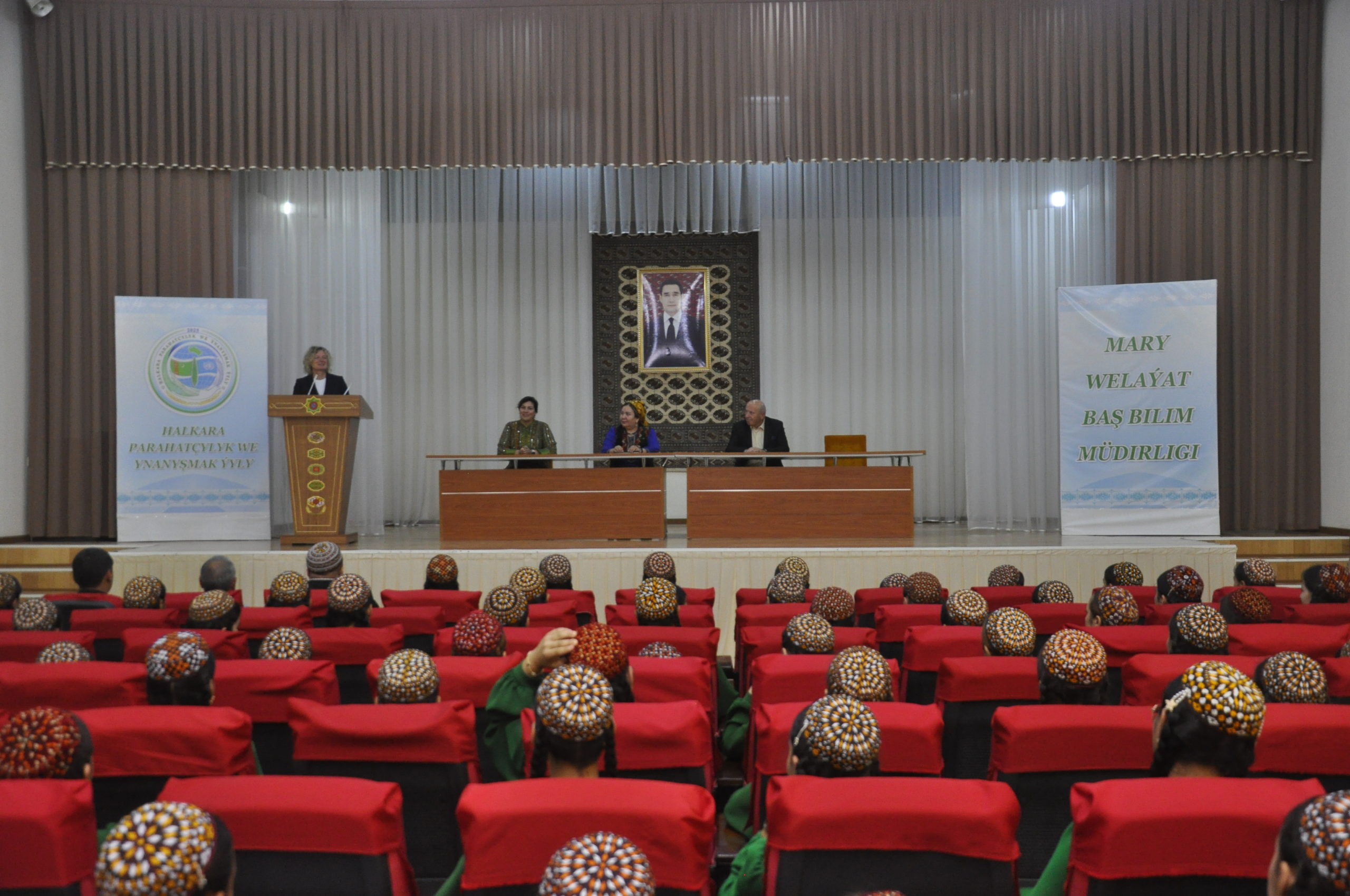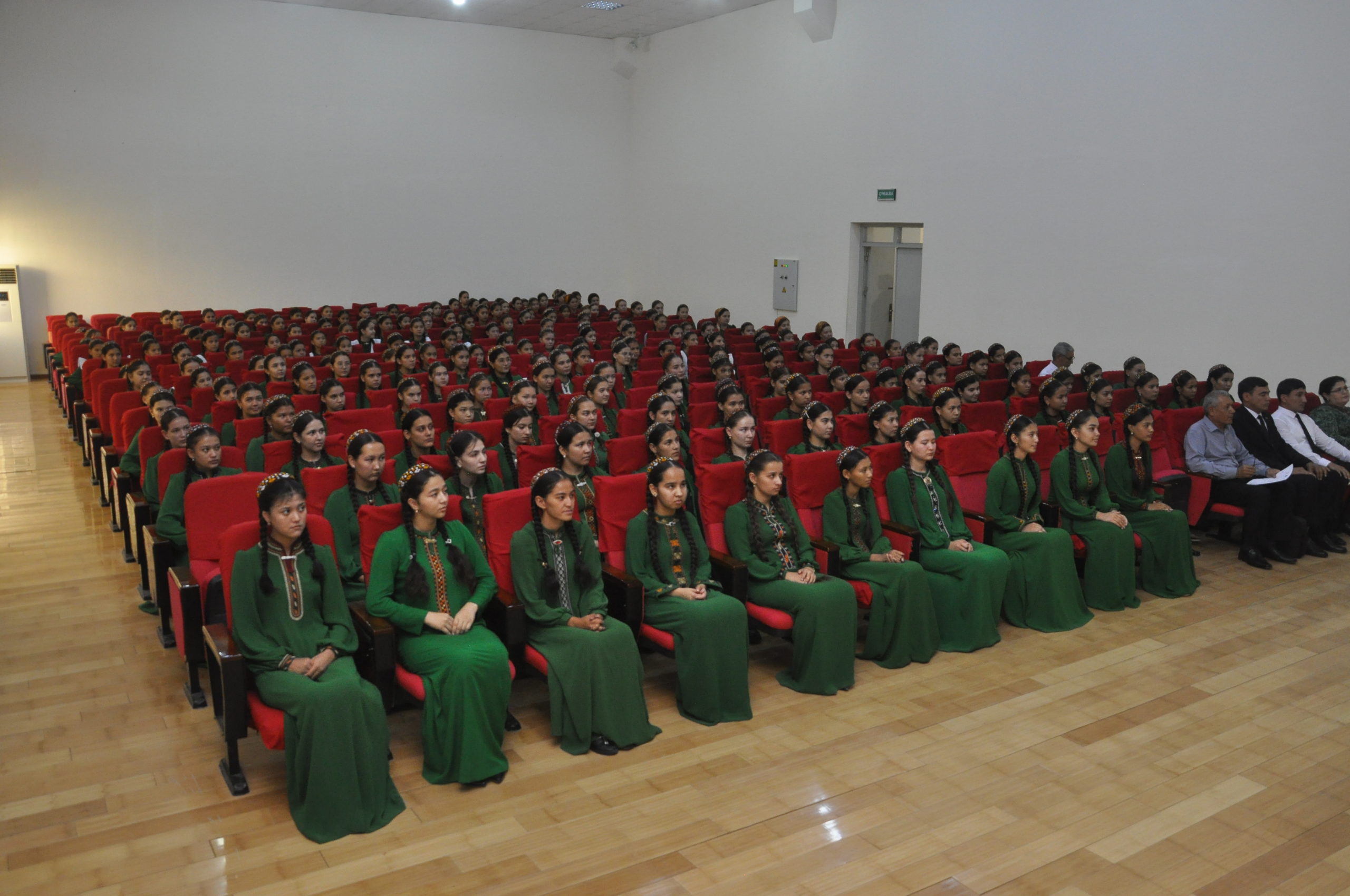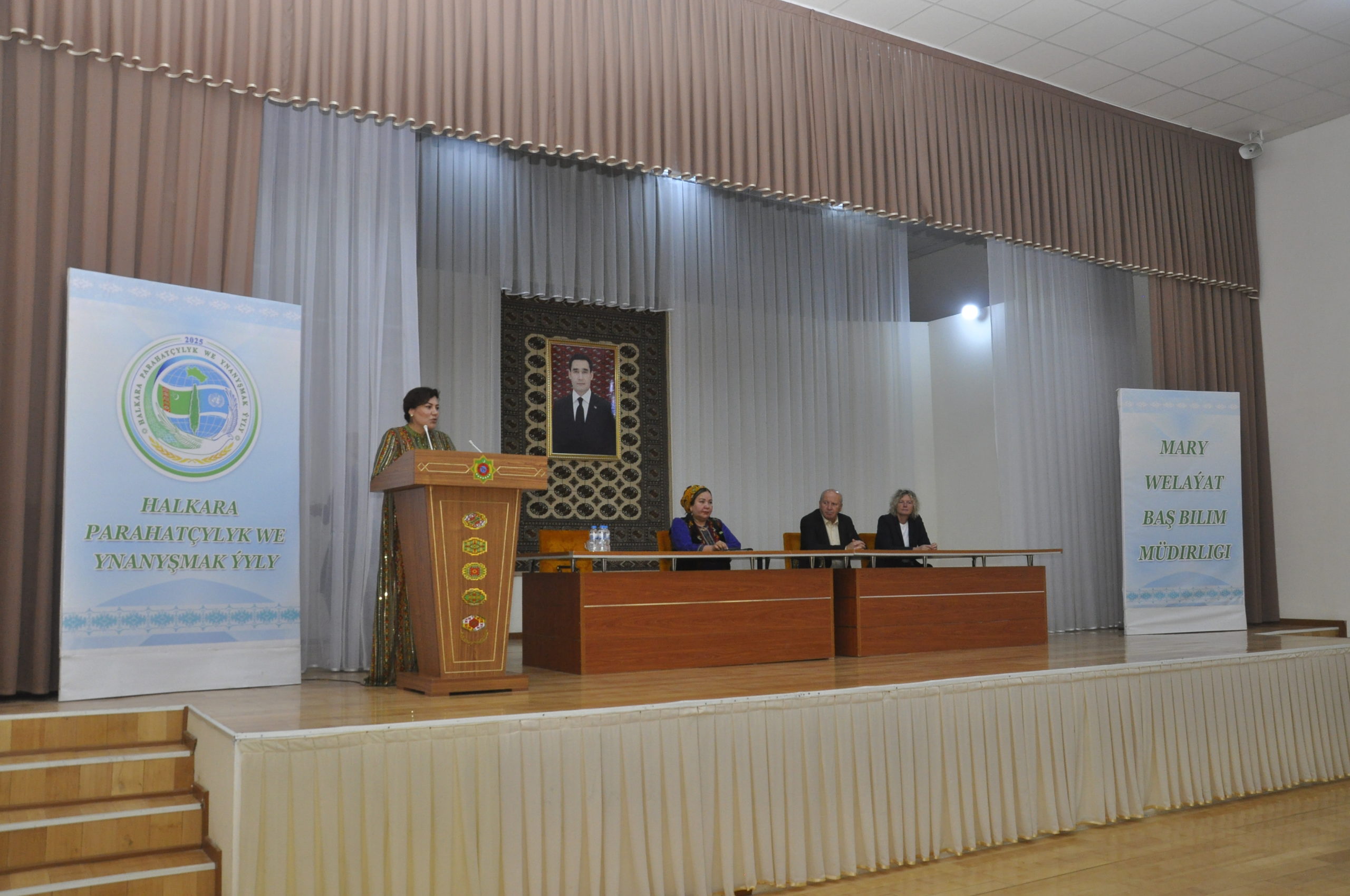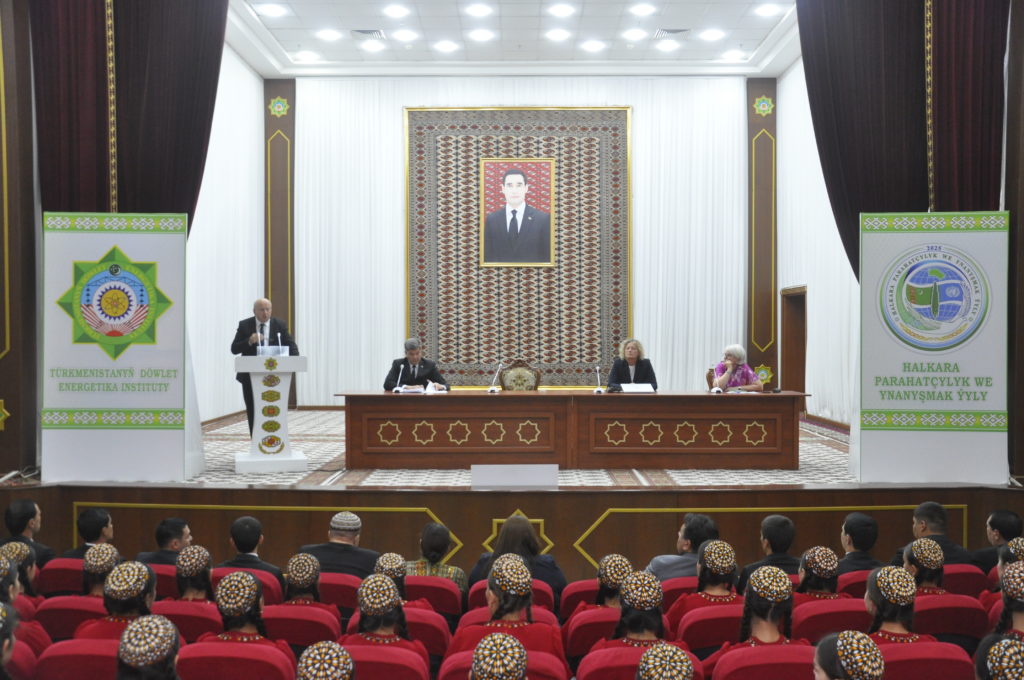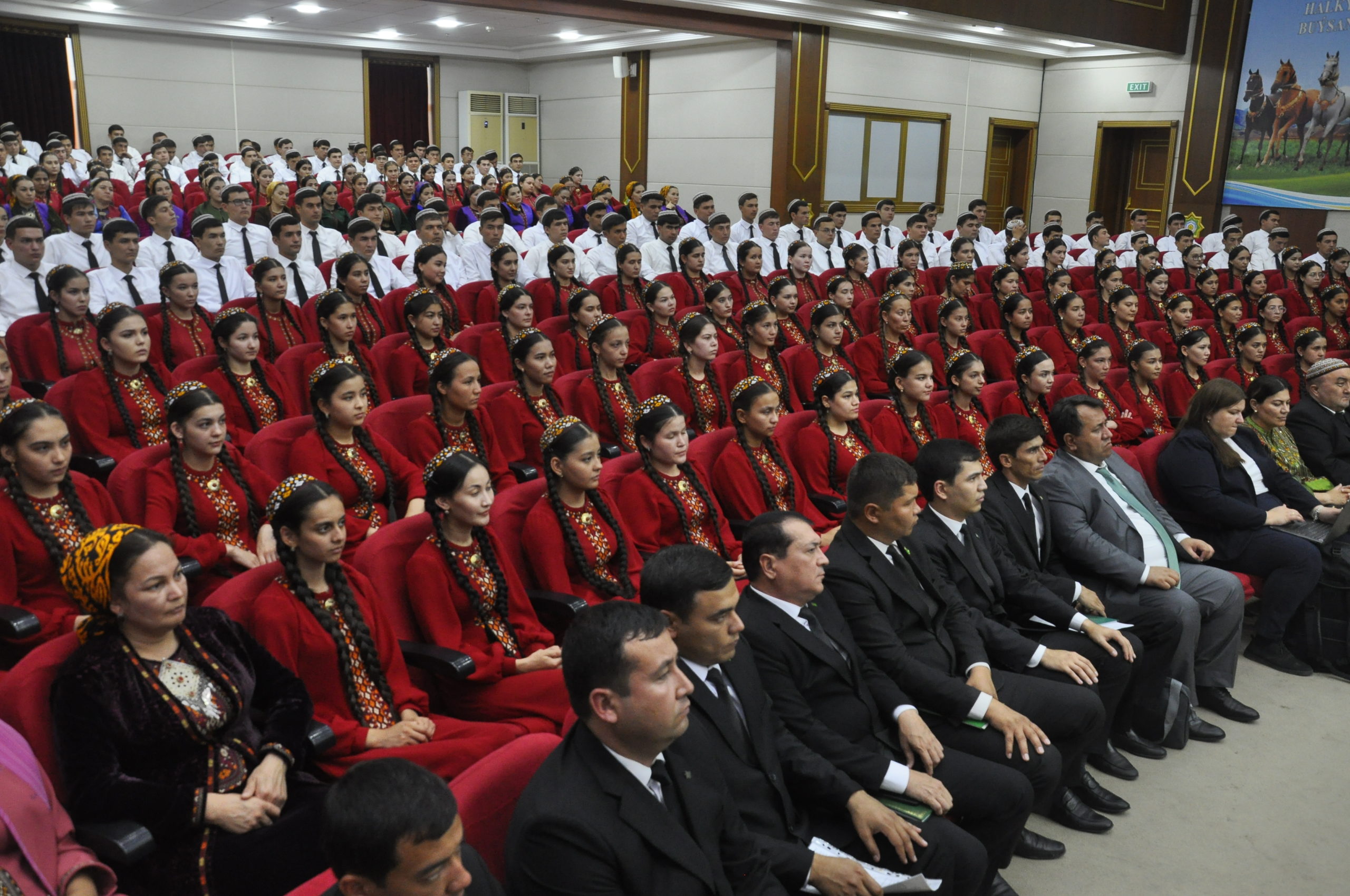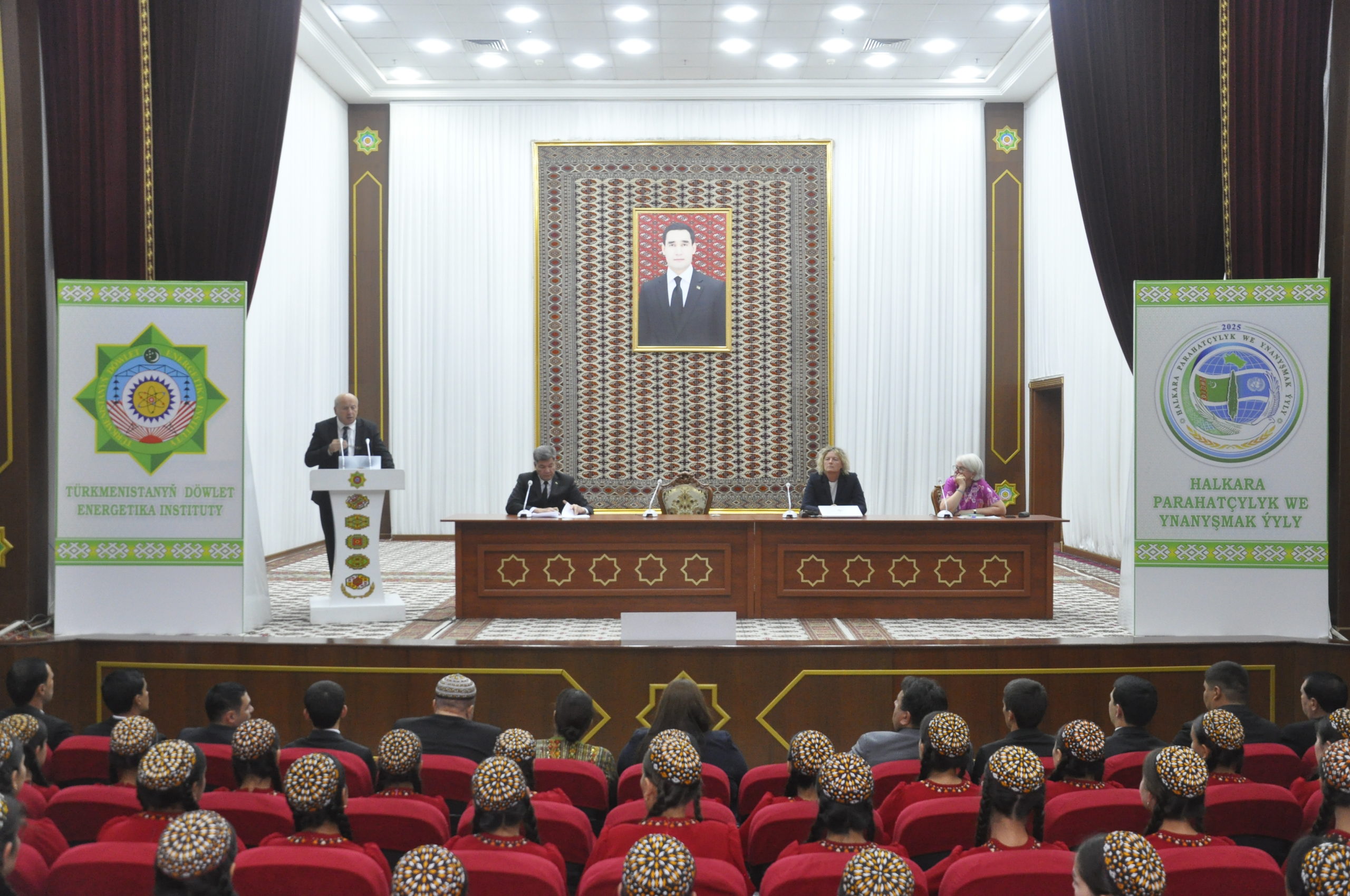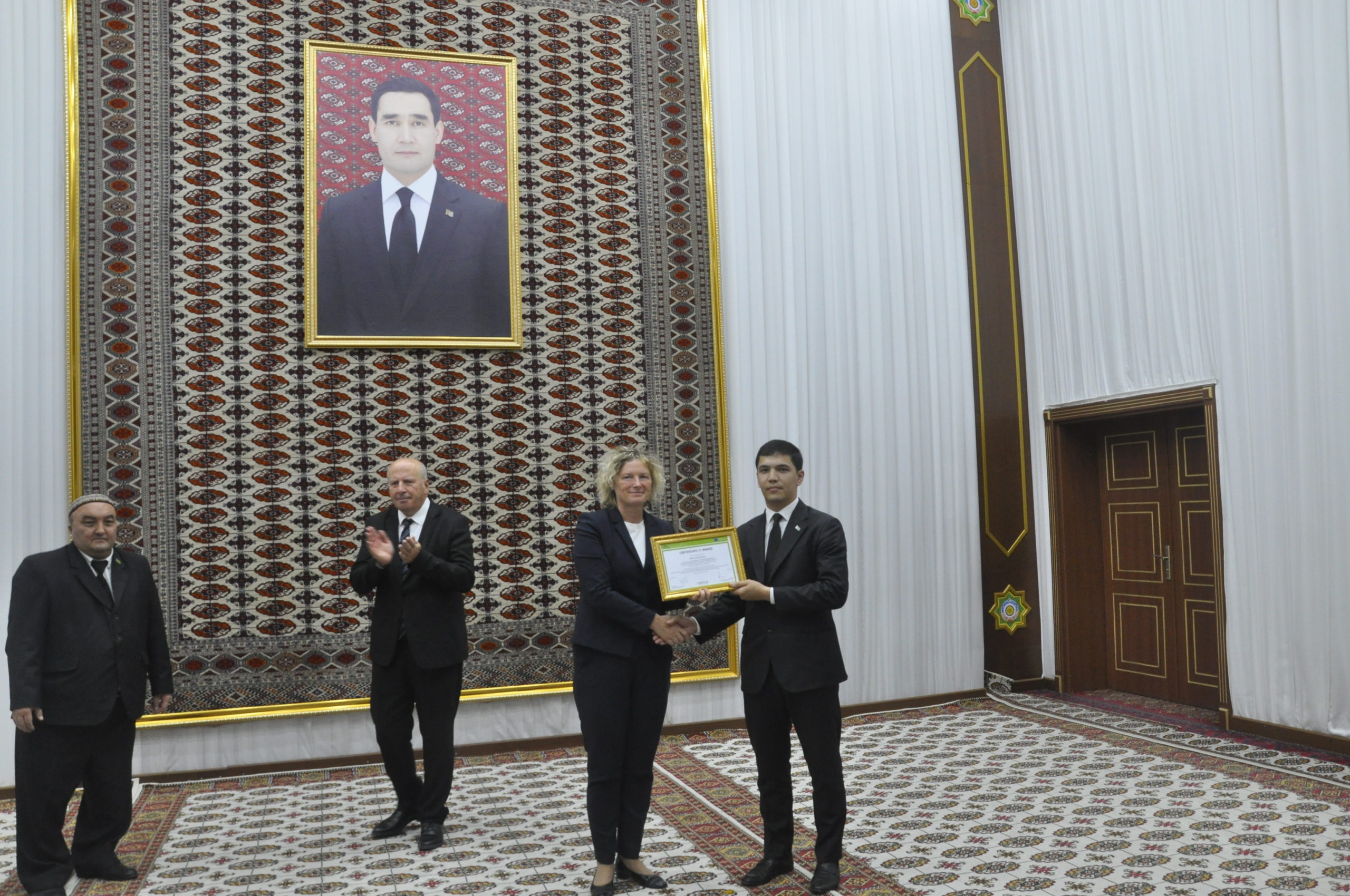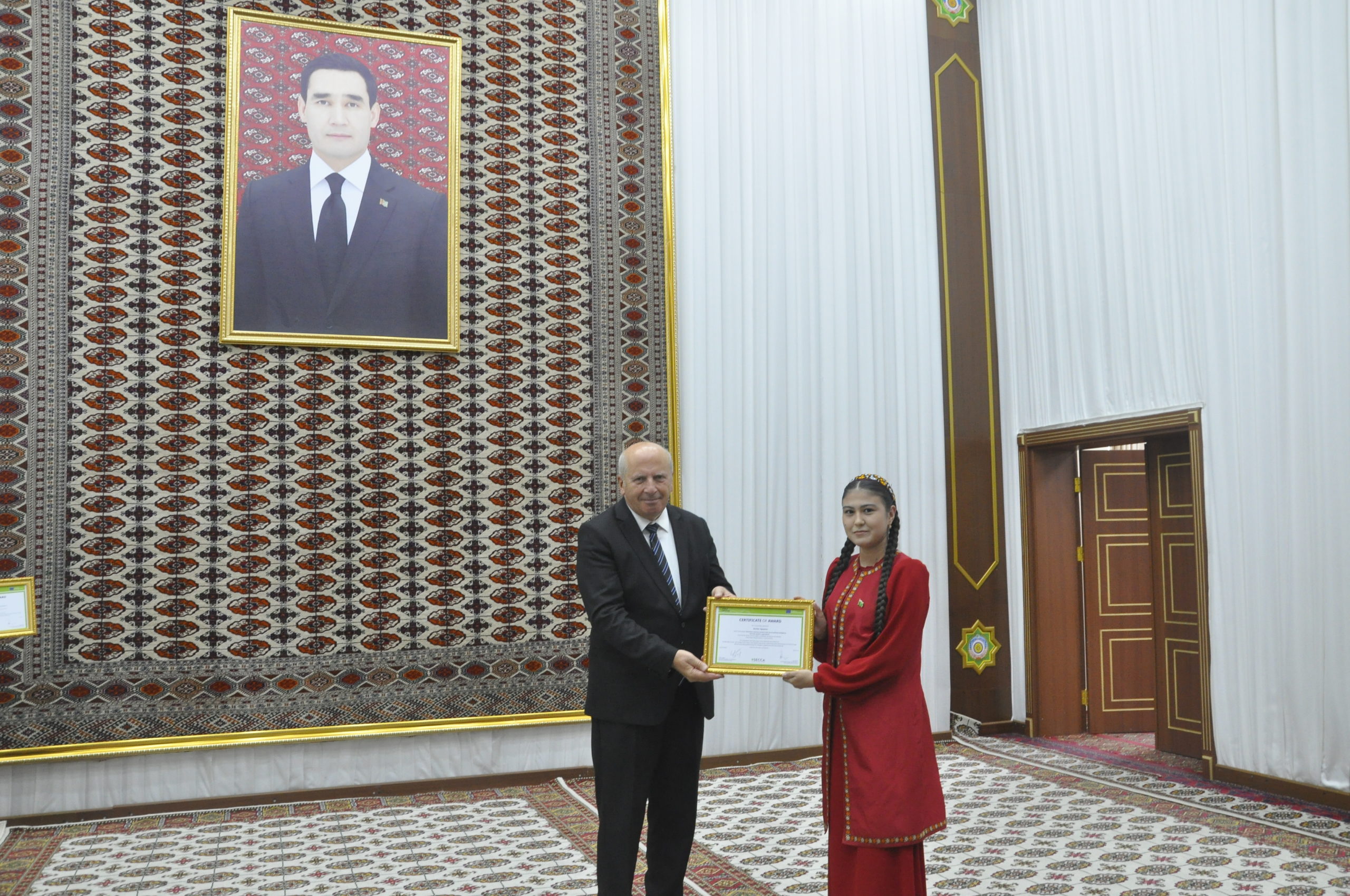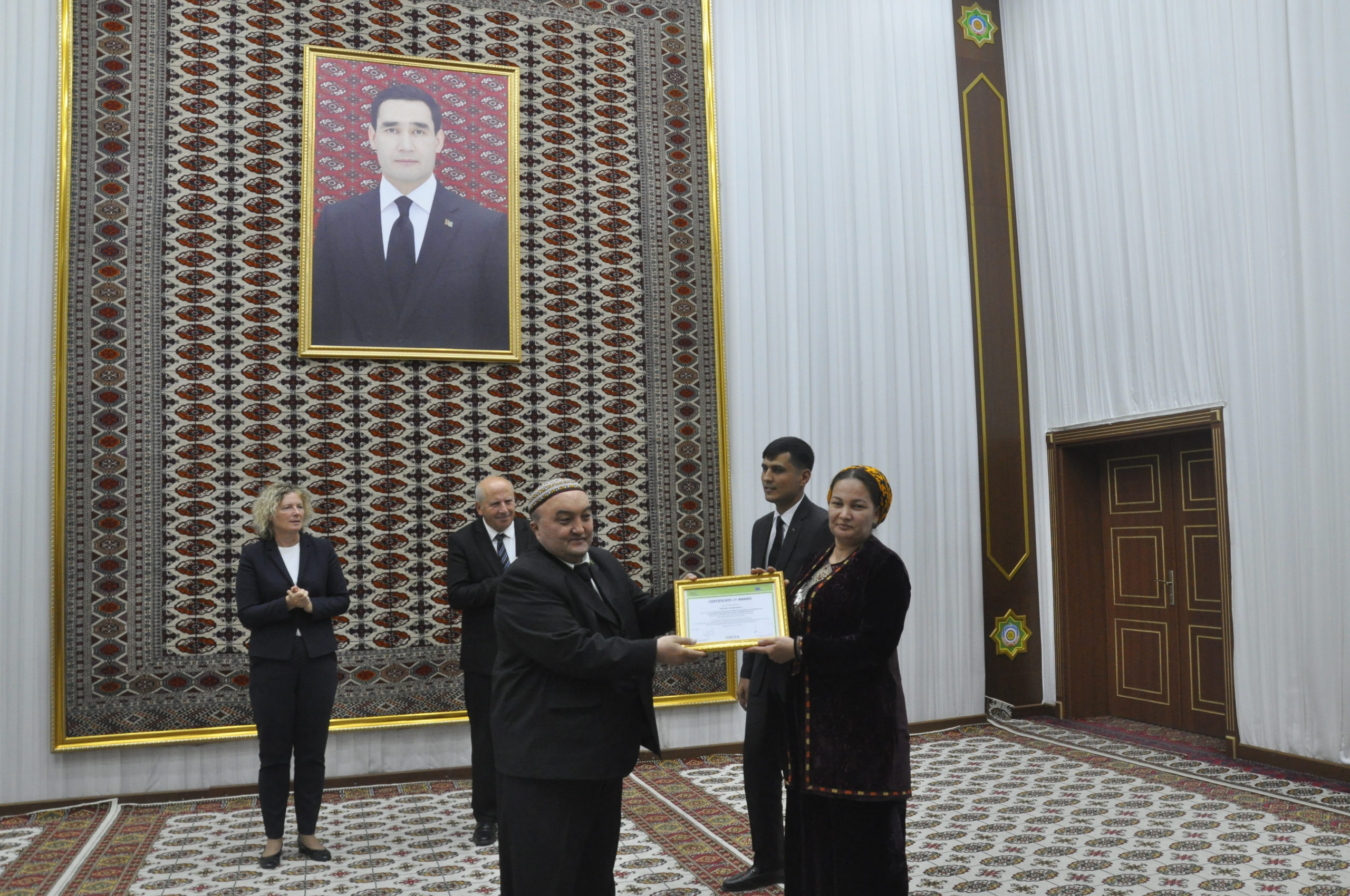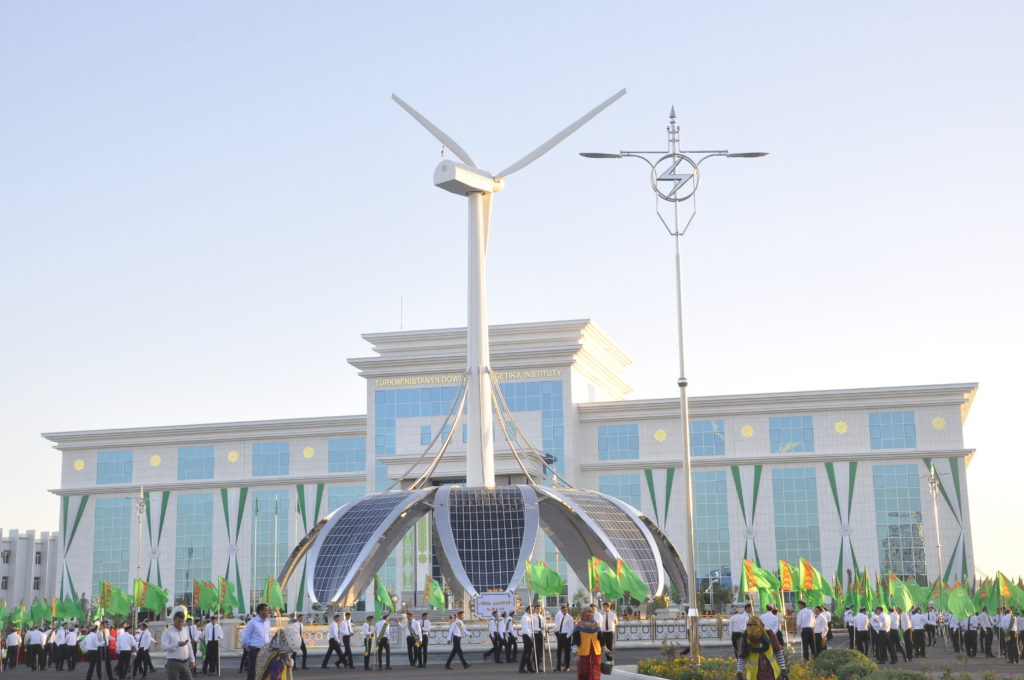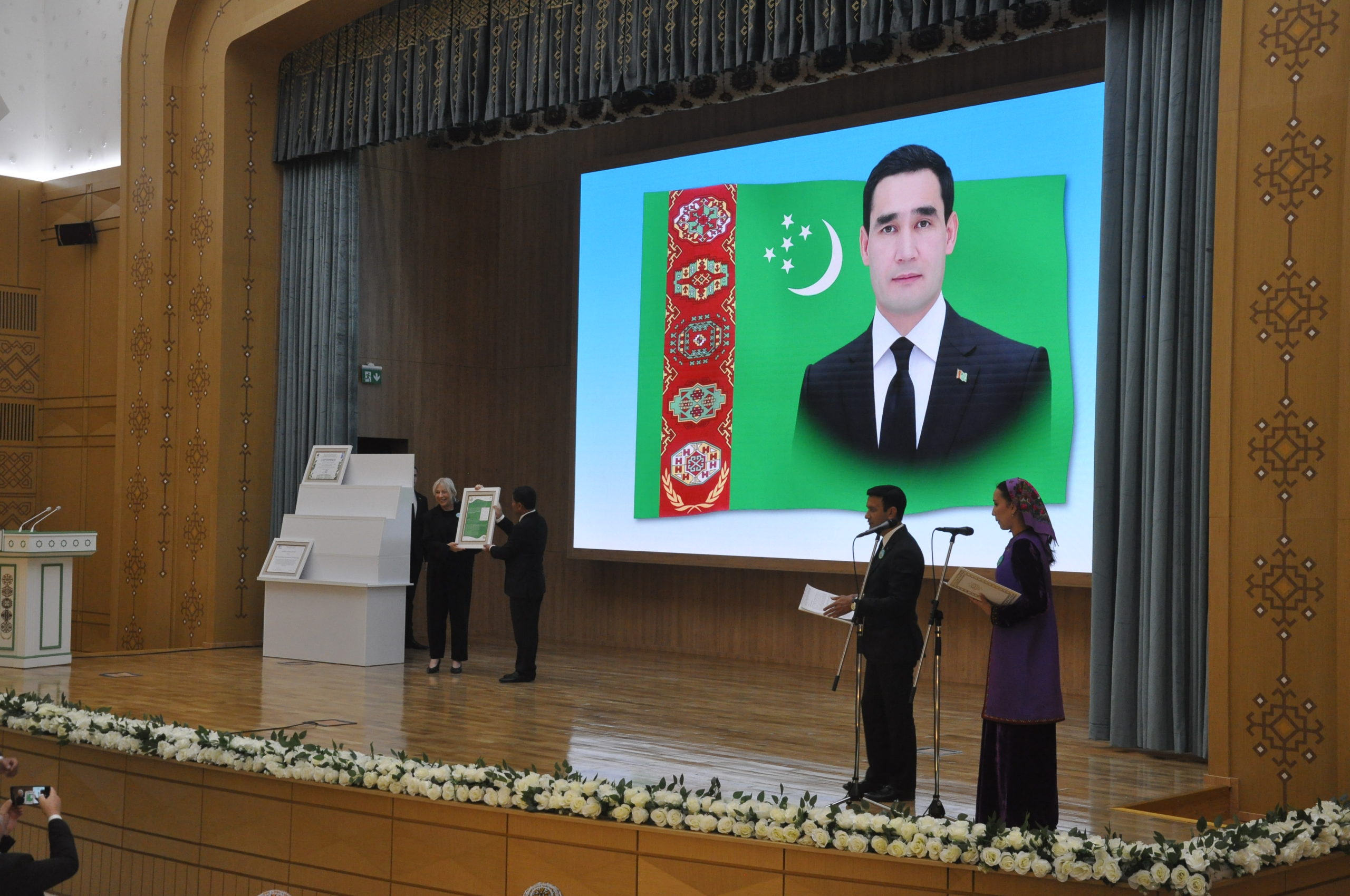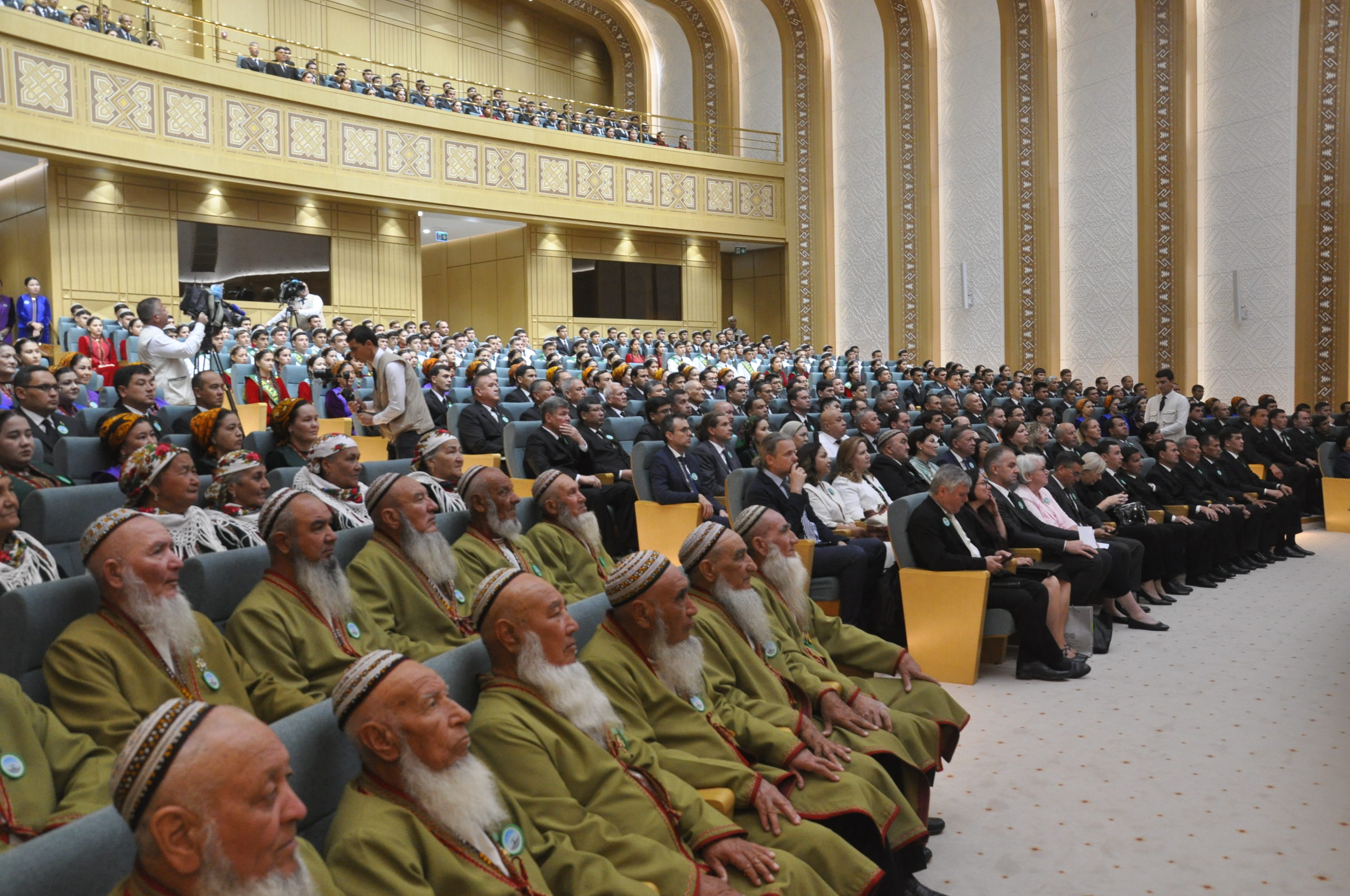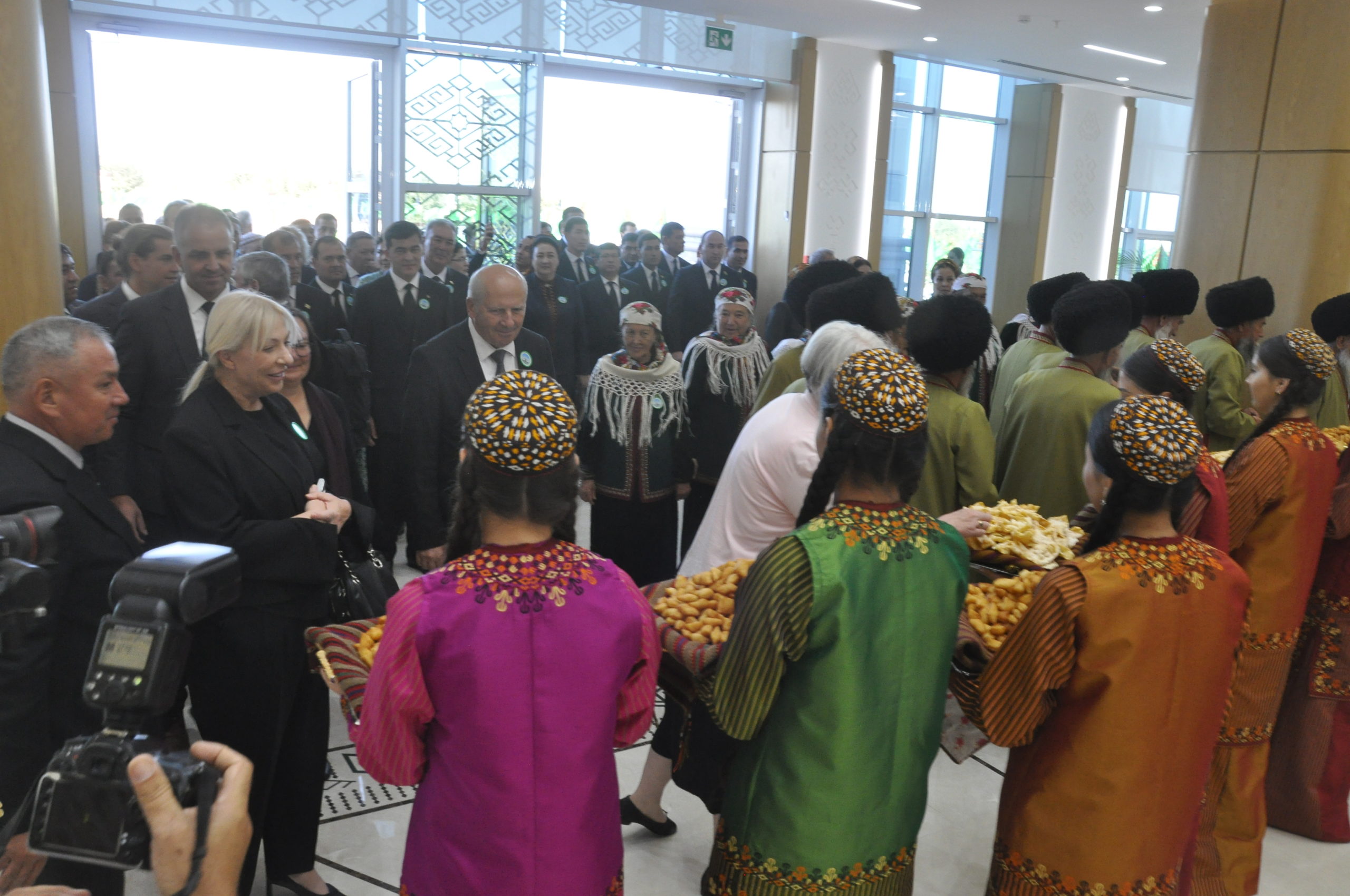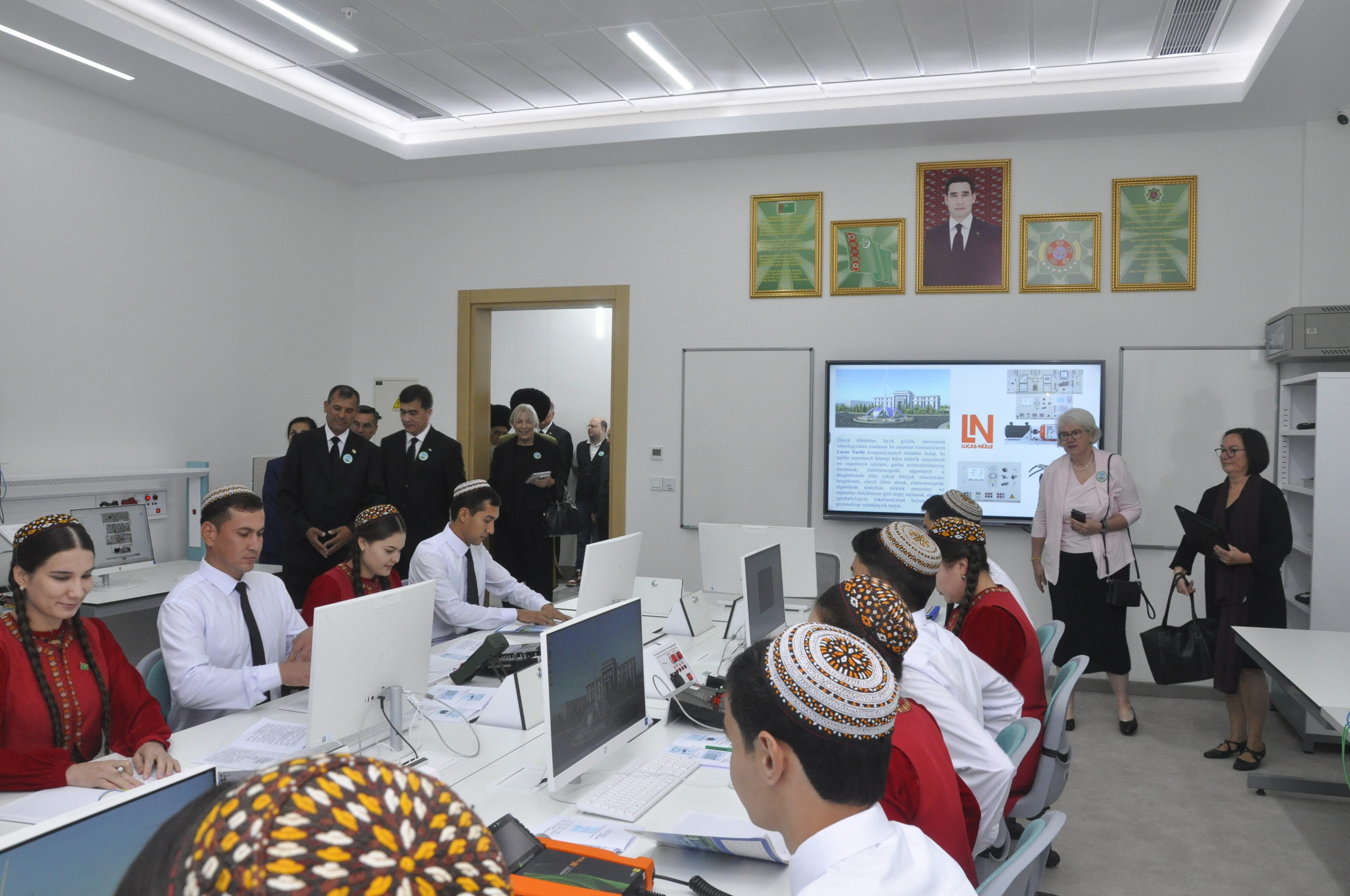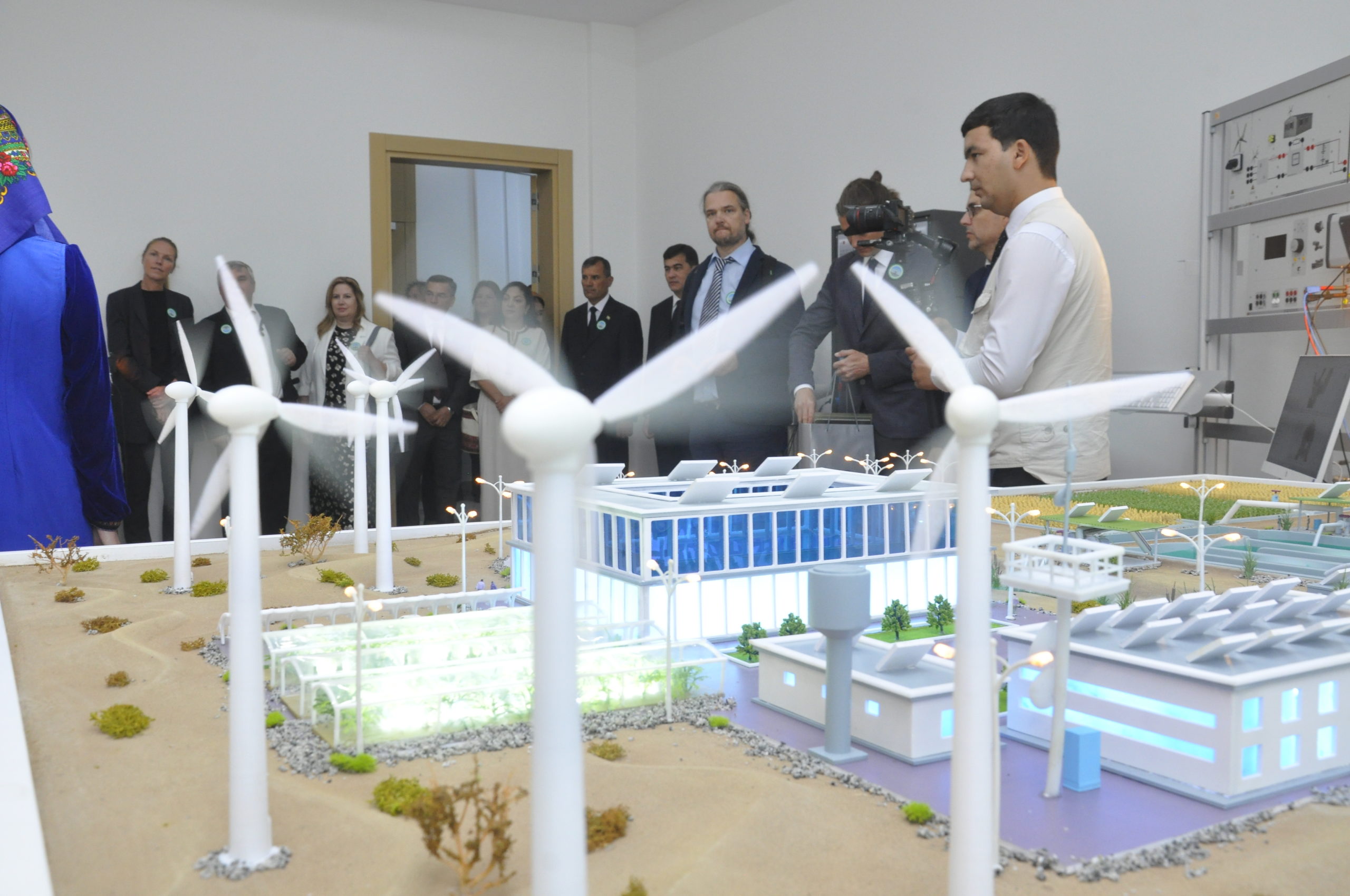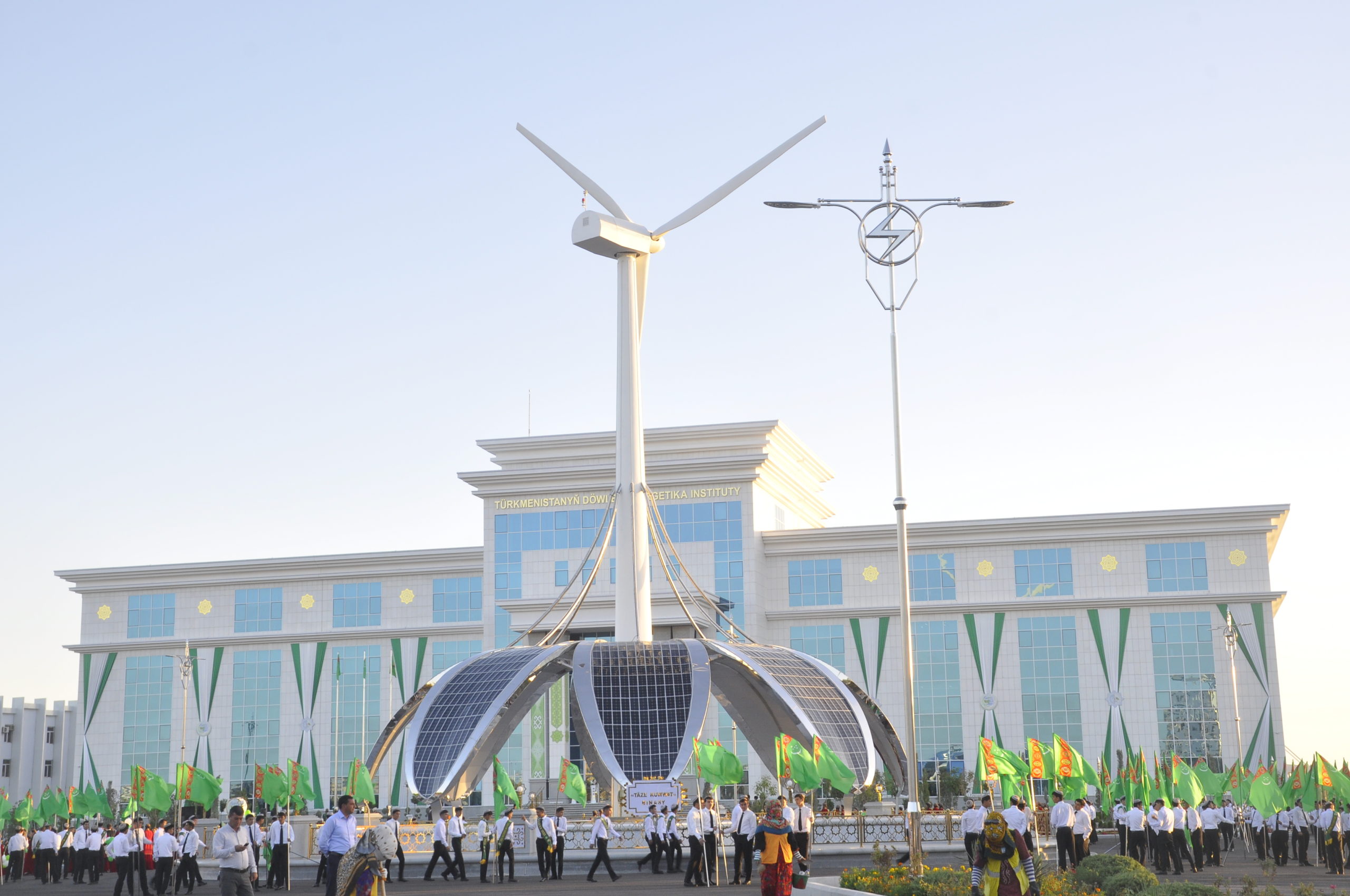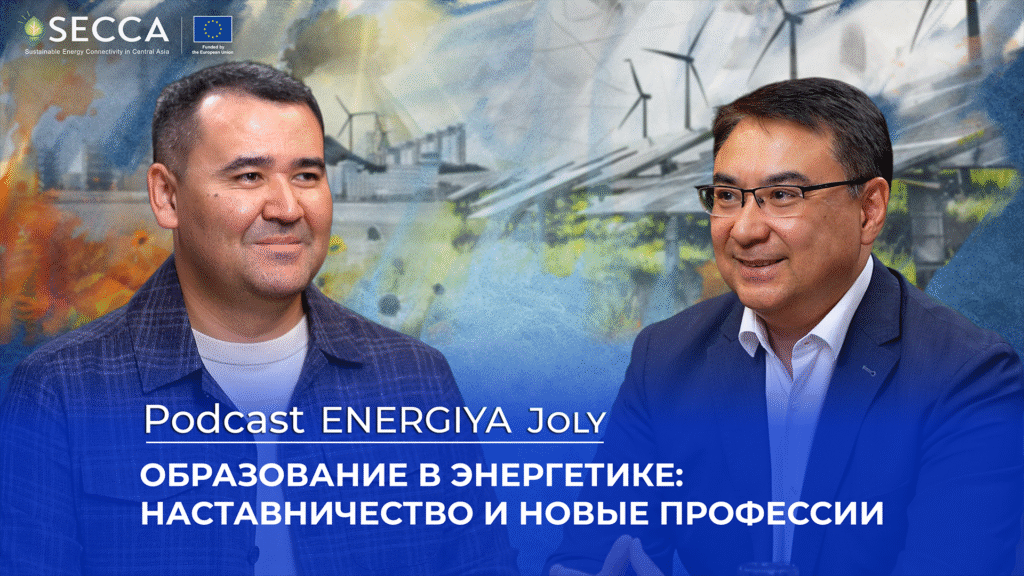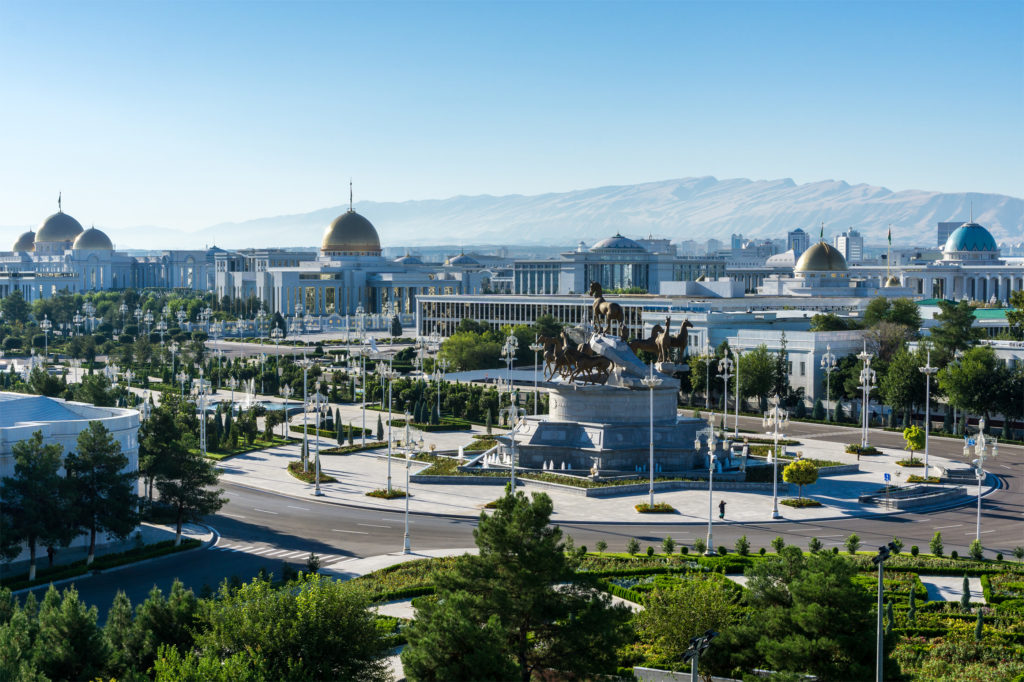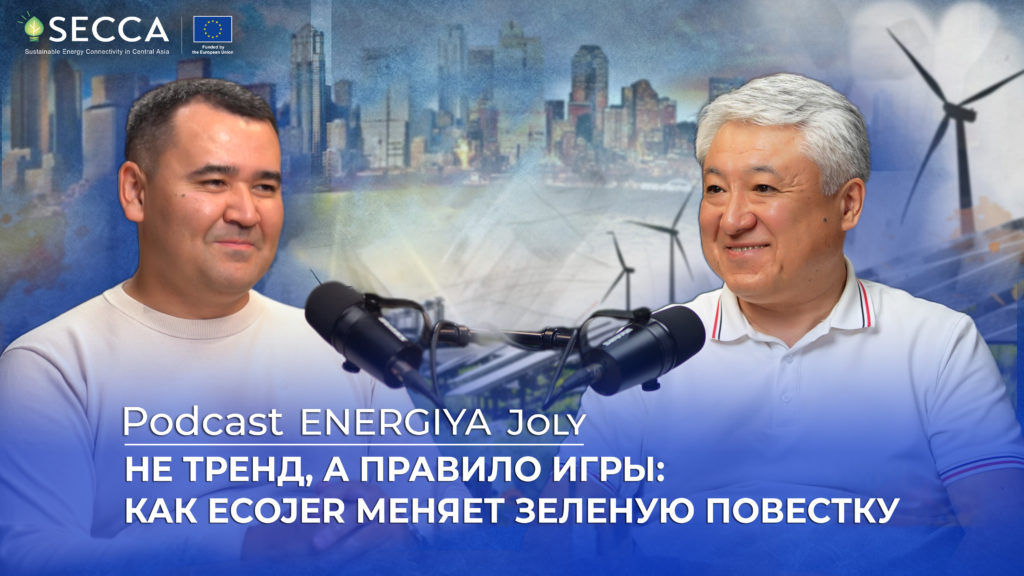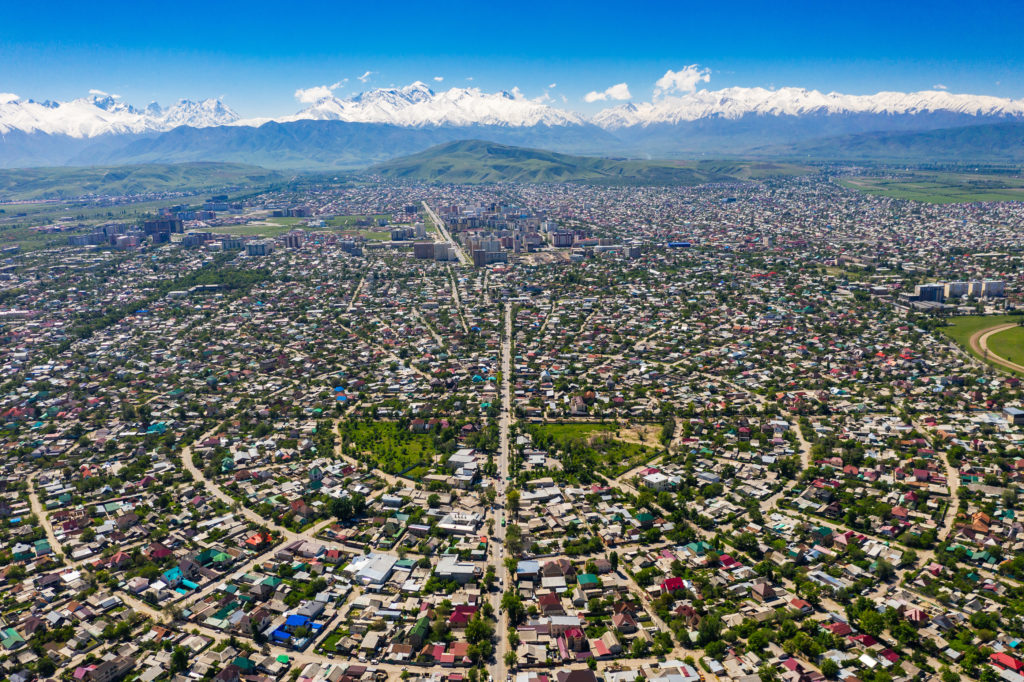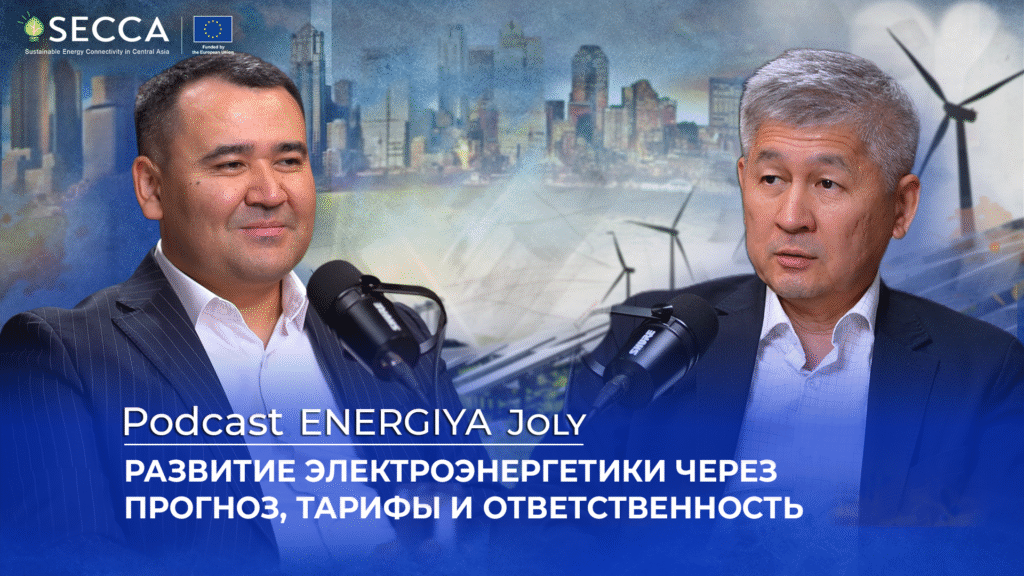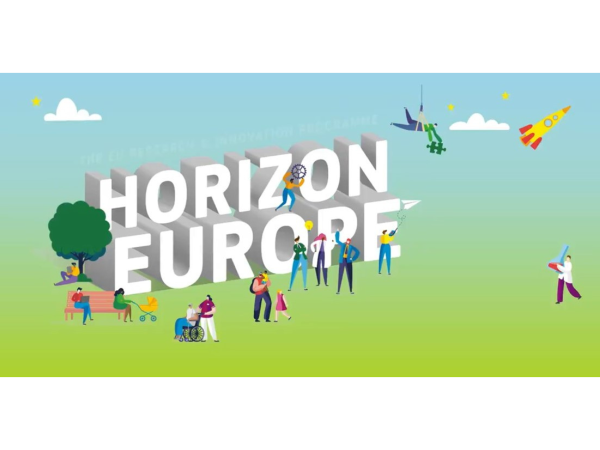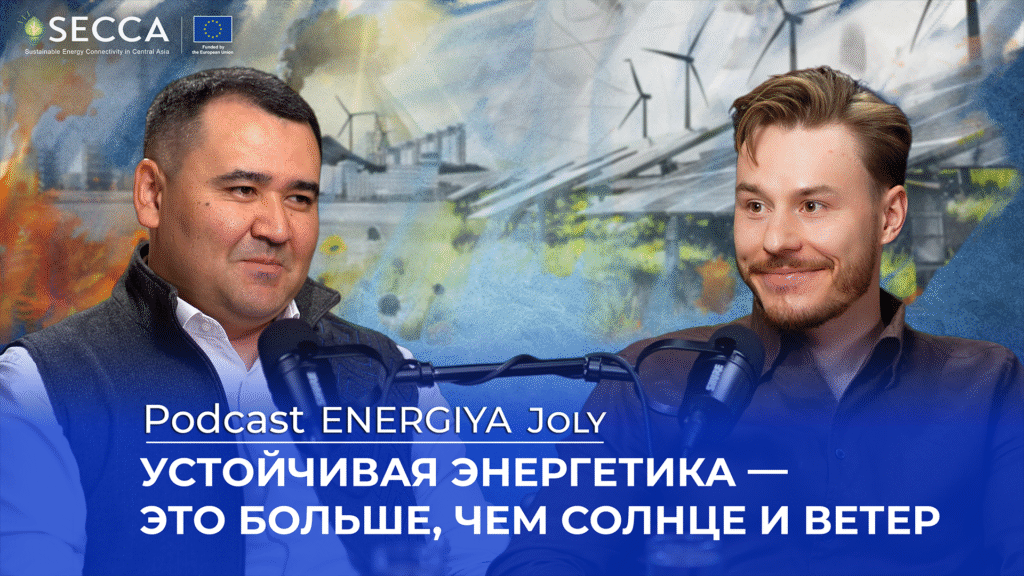Mary, Turkmenistan – The Delegation of the European Union (EU) to Turkmenistan awarded “Green Certificates” to the State Energy Institute of Turkmenistan (SEIT), recognising its commitment to sustainable and energy-efficient construction. The “Green Certificates” were presented by H.E. Ms Beata Peksa, EU Ambassador to Turkmenistan, during the official opening ceremony of the SEIT’s new academic building in Mary. The ceremony was attended by representatives of the Cabinet of Ministers of Turkmenistan, Ministry of Energy of Turkmenistan, SEIT faculty and students, the EU, and other international partners.
As part of the EU-funded Sustainable Energy Connectivity in Central Asia (SECCA) project’s activities in Turkmenistan, SECCA experts provided technical recommendations during the design and construction phases of the new building, focusing on green and sustainable building standards in line with the EU best practices. At a later stage, the Latvian Sustainable Building Council carried out a sustainability assessment of the new building of SEIT confirming that it reflects the successful integration of green construction standards and innovative approaches. The certificates acknowledge SEIT’s commitment to implementing innovative energy efficiency and renewable energy solutions in its new facilities, contributing to more sustainable use of resources and improved learning conditions.
The “Green Certificates” awarded to SEIT recognise achievements in three key areas:
- Water Conservation and Management: This recognises the use of water-efficient technologies, such as rainwater collection and efficient irrigation solutions – initiatives that contribute directly to addressing Turkmenistan’s water scarcity challenge.
- Energy Efficiency and Renewable Energy Integration: By promoting renewable solutions, including solar power, this achievement demonstrates a strong commitment to a sustainable energy future.
- Education and Capacity Building: This recognises the institution’s efforts in providing training on sustainable building practices and fostering a culture of sustainability that will have lasting positive impacts on the built environment, ensuring that future generations of specialists are trained in sustainable construction and energy practice.
Addressing the participants of the ceremony, Ambassador Peksa said: “Through initiatives, such as the EU-funded SECCA project, the European Union is working with partners across the region to promote renewable energy, strengthen energy efficiency, and encourage sustainable building practices. The SEIT’s new academic building is a practical outcome of this cooperation, demonstrating how local commitment and international expertise can be successfully combined. This recognition underscores the State Energy Institute’s role as a leading educational and research institution advancing Turkmenistan’s sustainable energy agenda. It highlights SEIT’s efforts to apply modern technologies in alignment with international and European standards. We are pleased to work with SEIT, which is giving young people the tools and knowledge they need for building a clean and green future for their country.”
A day earlier the guests of the ceremony visited the photo exhibition “The European Union – Turkmenistan: Faces of Sustainable Energy Development Cooperation”, organised by the SECCA project as part of the EU–Turkmenistan Sustainable Energy Days (SEDs). The exhibition showcases inspiring individuals from Turkmenistan who are driving transition toward a more sustainable energy system. The portraits will remain on display at SEIT to inspire students to achieve their academic and professional goals. The SEDs campaign takes place for the third time in Turkmenistan. The SEDs programme will continue with the International Conference “Sustainable Energy – the Energy of the Future: International Experience in Advancing and Implementing Innovative Energy Efficiency and Renewable Energy Technologies in Residential and Public Buildings” (2 September 2025) and the Training Workshop “Development of Renewable Energy Sources in Turkmenistan: Features of Operation and Maintenance of Solar and Wind Power Plants in the Climatic Conditions of Turkmenistan” (3-4 September 2025), both to be hosted at SEIT.
